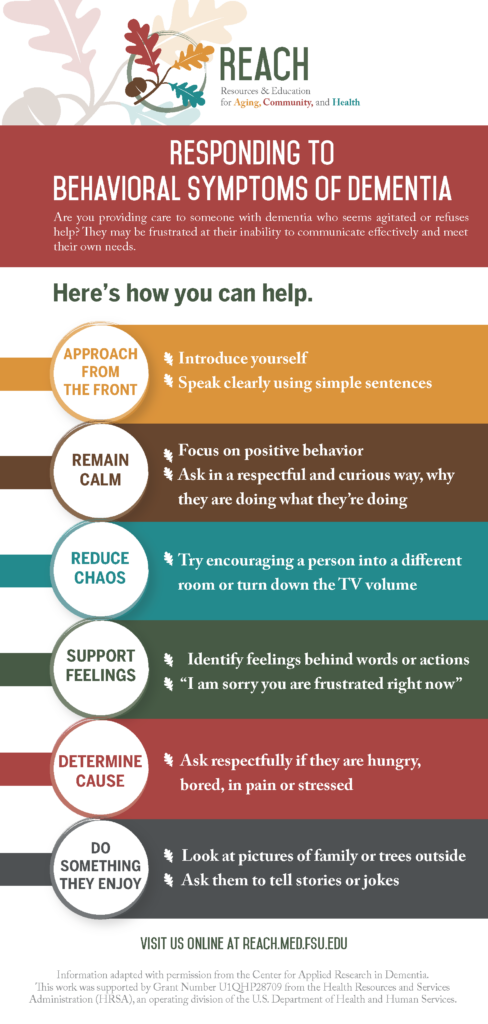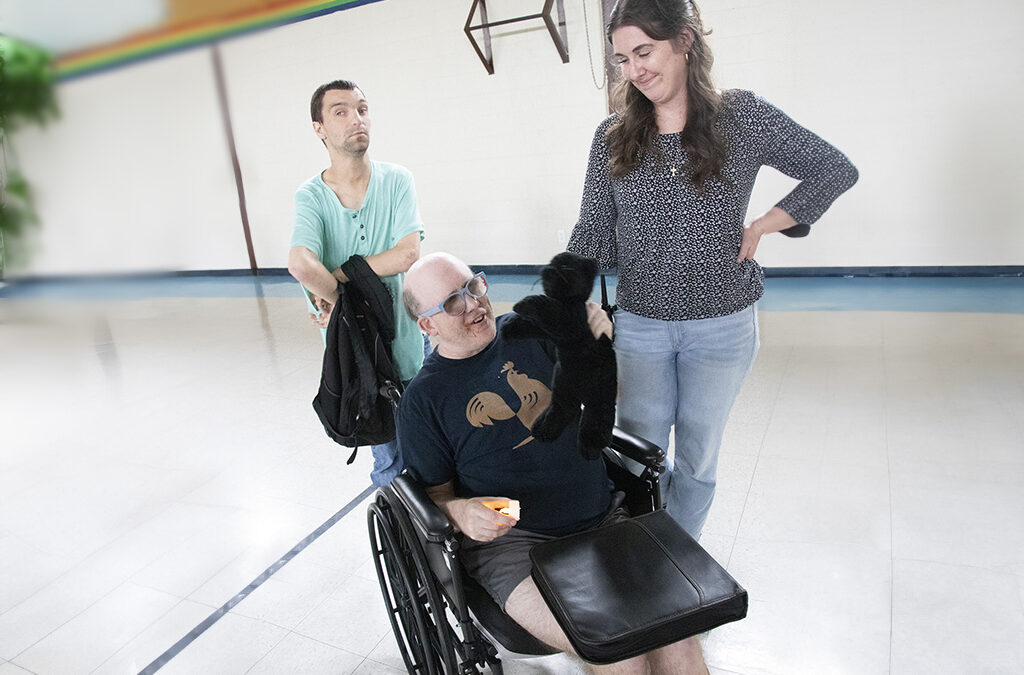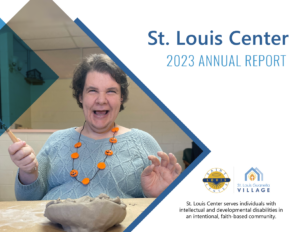 Persons with dementia often demonstrate responsive behaviors that are in response to an unmet human need. These behaviors are not “caused” by a disease and are a form of communication. Agitation, refusing to accept help, saying “I want to go home,” – these are examples of responsive behaviors often seen in persons with dementia.
Persons with dementia often demonstrate responsive behaviors that are in response to an unmet human need. These behaviors are not “caused” by a disease and are a form of communication. Agitation, refusing to accept help, saying “I want to go home,” – these are examples of responsive behaviors often seen in persons with dementia.
This can be intensified in people with intellectual and developmental disabilities.
The guide shown to the right offers ways to be more effective in responding to responsive behaviors. It has been developed in collaboration with the REACH program of Florida State University School of Medicine – Department of Geriatrics, and the Center for Applied Research in Dementia. These approaches are evidence-informed, have been useful in many different settings, and were developed for your use through a grant from the Health Resources and Services Administration.
You do not have to use each item in the guide every time you interact with a person with dementia. It is a matter of matching the item to the situation. For example, if there is a lot of noise in the environment turning down the volume of the TV or taking the resident to a quieter place might be useful. If the person is anxious, ask if the resident is hurting anywhere or if they are hungry. You also can ask if the person would show you what is wrong and observe what the person points to or looks at.
You could print and keep this guide handy, such as on a clipboard that can be carried with you. You could even use the back of it to list activities that a resident enjoys, what name the resident likes to be called, their preferred language, what the person likes to talk about, etc.
Also important …
Although closely interconnected, it is important to remember that emotion and memory are two distinct systems of the brain. For persons with dementia, short-term memory capacity may decline, but the way emotions are experienced is just as “real” as ever.
For additional information, please visit Reach.Med.FSU.Edu or the Center for Applied Research in Dementia.
Read the entire issue of St. Louis Spirit here!




